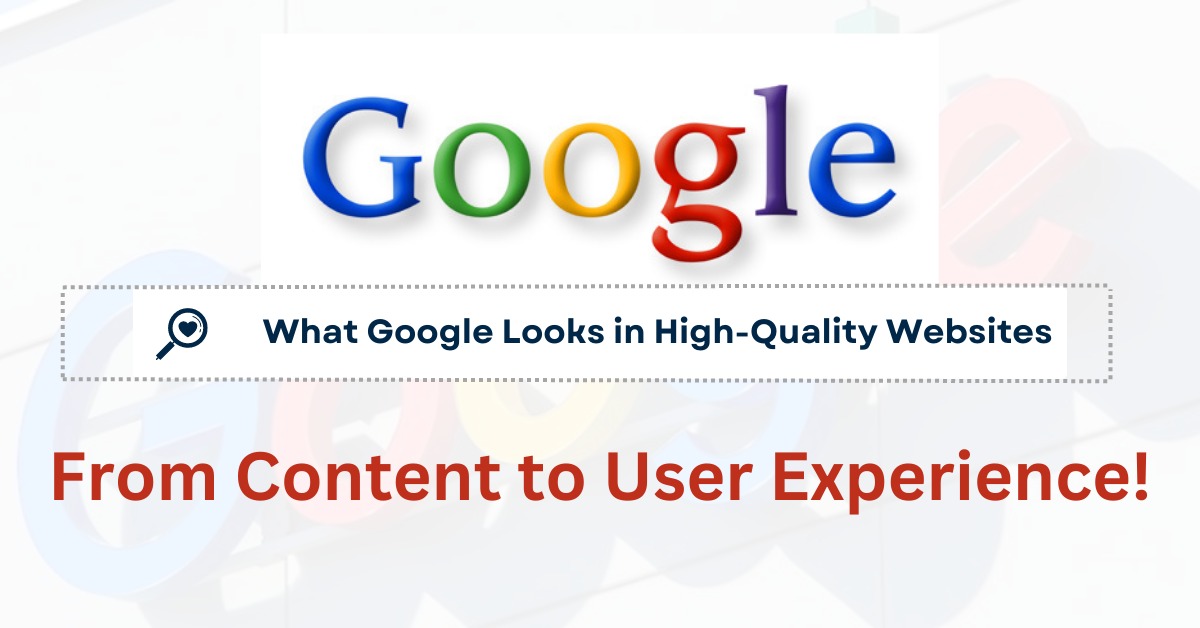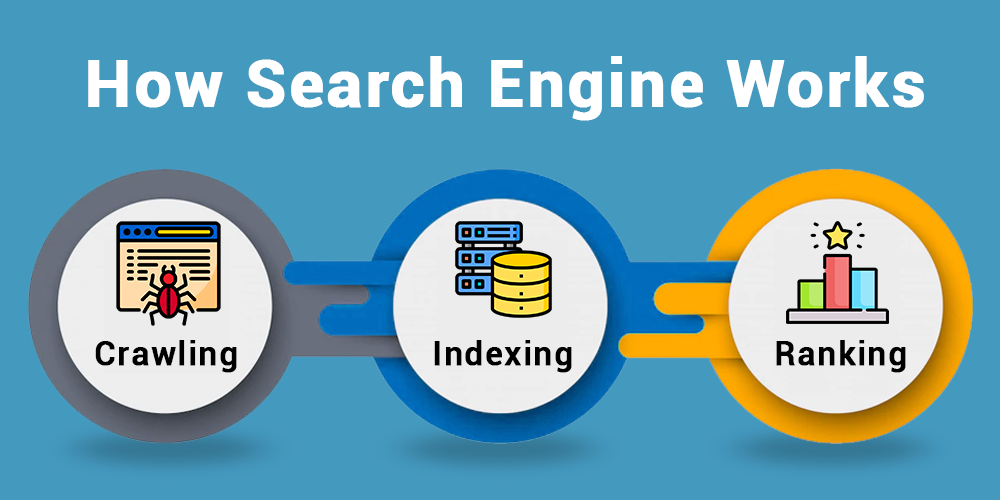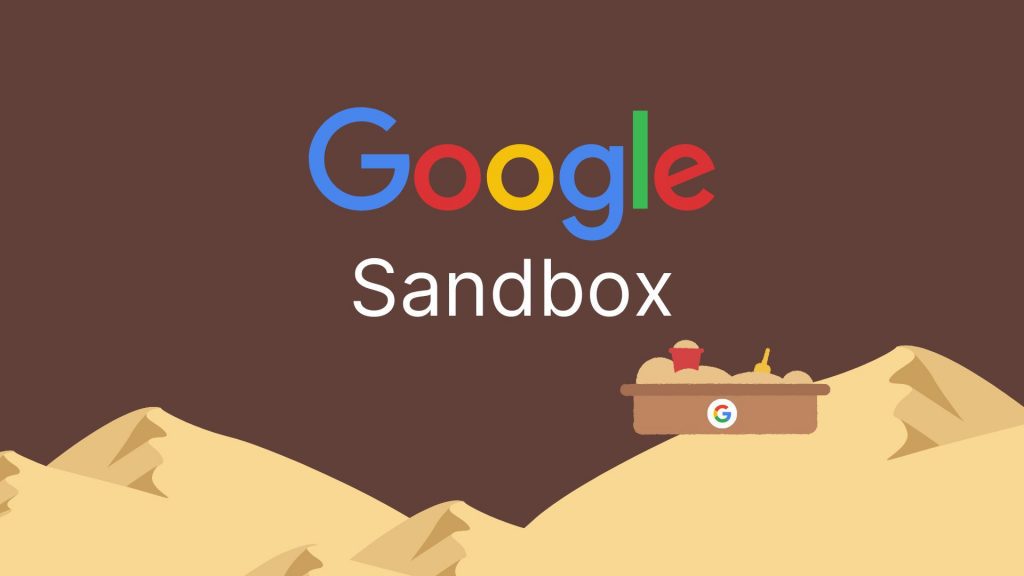
From Content to User Experience: What Google Looks for in High-Quality Websites
Google is a search engine that uses a complex system of algorithms to provide users with relevant search results. The process involves three main steps: crawling, indexing, and Ranking/ Serving.

- Crawling: This is the process by which Google’s automated program, called a spider or crawler, navigates through the web, following links between pages and gathering information about each page it visits. The crawler identifies new pages, updates existing ones, and discovers changes to pages.
- Indexing: Once the crawler has collected the information from web pages, it organizes and stores that data in a massive database known as the index. This database contains all of the information that Google has collected about web pages, including keywords, images, and links.
- Ranking/ Serving: When a user enters a search query, Google’s algorithm evaluates the query and searches the index for the most relevant pages. Google’s algorithm takes into account many different factors, including the user’s location, language, and search history, to determine which pages are most likely to be relevant to the query. Google then presents the search results to the user, along with ads and other related information.
Google works by crawling the web to discover new pages and changes to existing pages, indexing the information it collects, and using a complex algorithm to serve relevant search results to users. This process is constantly evolving and improving, as Google continues to refine its algorithms and adapt to changes in the web.
What is Google Sandbox Effect?

The “Google Sandbox” is a term used to describe a phenomenon where new websites may be temporarily held back from ranking well in Google’s search results, particularly for competitive or high-value keywords. While the existence of the sandbox is debated, many SEO experts believe that it is a real factor that can impact new websites.
The idea behind the sandbox is that Google places new websites in a kind of probationary period, during which their ability to rank well is limited. This is done to prevent spam and low-quality sites from quickly rising to the top of the search results. Google may use a variety of signals to determine whether a site is new or not, including the date the domain was registered, the age of the content on the site, and the number of backlinks pointing to the site.
The impact of the sandbox on website crawling and indexing can be significant. During the probationary period, Google may crawl and index new sites less frequently or with less depth, which can limit the amount of traffic and visibility a new site receives. This can make it difficult for new sites to gain traction in the search results, particularly for high-competition keywords.
However, the exact length and severity of the sandbox period are not clear and may vary depending on the site and the specific keywords being targeted. Some SEO experts suggest that the sandbox may last for several months, while others believe that it may be more subtle and shorter in duration.
To minimize the impact of the sandbox on a new website, it’s important to focus on creating high-quality, original content that is relevant to your target audience. It’s also important to build a strong backlink profile by acquiring links from high-quality, authoritative websites in your industry. Over time, as your site gains more authority and trust, it should be able to overcome the effects of the sandbox and rank more prominently in the search results.
Advance Factors for Google Ranking:

Google’s algorithm, also known as PageRank, uses a complex mathematical formula to determine the relevance and authority of web pages. The algorithm takes into account many different factors, including:
- Content relevance: Google looks for content that is relevant to the user’s query, as well as authoritative and high-quality.
- Backlinks: Google considers the number and quality of links pointing to a page as an indication of its importance and relevance.
- User experience: Google evaluates the user experience of a website, including factors like load time, mobile-friendliness, and security.
- Social signals: Google considers the social media presence of a website, such as likes, shares, and comments, as a signal of its popularity and authority.
- Site structure: Google looks at the organization of a website, including its URL structure, meta tags, and other technical elements.
- Geographic location: Google considers the user’s geographic location and tailors search results accordingly.
Google’s algorithm uses a combination of these factors, and many others, to determine the relevance and authority of web pages. The algorithm is constantly updated and refined to provide the best possible results to users.
How Digital Mogli Can Help?
Digital Mogli, a digital marketing agency, can help increase your website’s ranking through a variety of strategies and tactics. Here are some ways they can help:
- Keyword research and optimization: Digital Mogli can help identify the most relevant and valuable keywords for your business and optimize your website’s content accordingly. This can help improve your website’s visibility and relevance in search results.
- On-page optimization: Digital Mogli can optimize your website’s technical elements, such as title tags, meta descriptions, headers, and internal linking, to ensure that search engines can crawl and index your site effectively.
- Content marketing: Digital Mogli can help create high-quality, engaging, and optimized content that is tailored to your target audience’s needs and interests. This can help attract more traffic to your site and increase user engagement.
- Link building: Digital Mogli can help acquire high-quality, relevant, and authoritative backlinks from other websites to your site. This can help improve your website’s authority and relevance in search results.
- Local SEO: Digital Mogli can help optimize your website and online presence for local search queries, such as “best restaurants near me” or “plumber in [city].” This can help improve your visibility and relevance for local customers.
- Analytics and reporting: Digital Mogli can help monitor your website’s performance, track key metrics such as traffic, leads, and conversions, and provide detailed reports on your website’s ranking and visibility in search results.
Overall, Digital Mogli can provide a comprehensive digital marketing strategy that combines different tactics to improve your website’s ranking and visibility in search results, attract more traffic to your site, and generate more leads and conversions for your business.